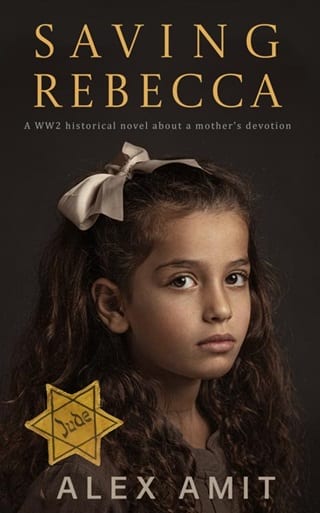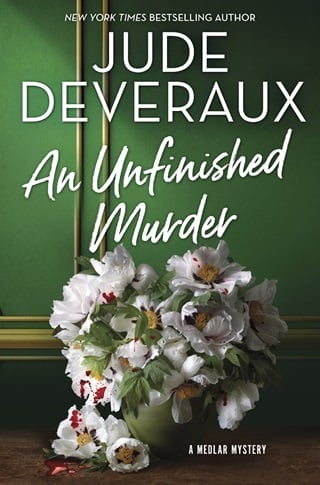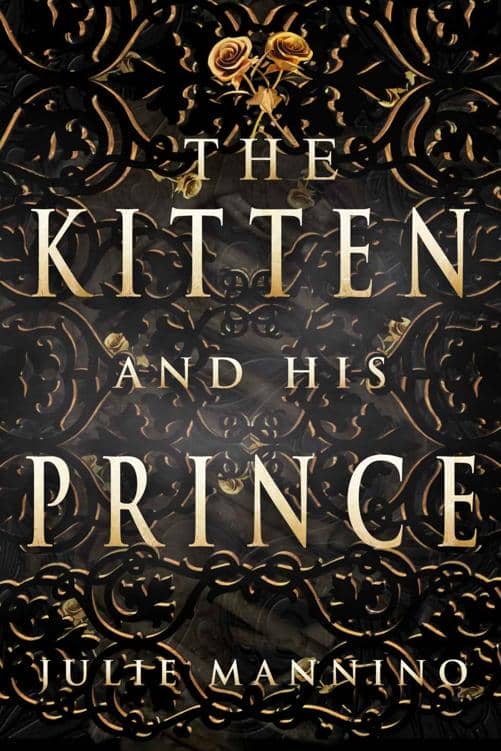21. Paris, September 1945
Chapter twenty-one
Paris, September 1945
Paris Police Headquarters, Place Louis Lépine
"How can I help you, Madame?" The police inspector looks up from the document before him, puts down the fountain pen he's holding, looks at me, intertwines his fingers, and leisurely leans back.
"I'd like to locate a policeman who works for the Paris police," I sit upright before him on the hard wooden chair.
"And why do you want to locate him, if I may ask?" He examines me from the other side of the dark mahogany desk, his black eyes look like tiny beads that stand out against his light skin.
"It's personal, sir." I look at his blue ironed uniform. Although there's no officer insignia on his shoulders, gold- colored buttons adorn them as if they were valuable coins that emphasize his high status. His black mustache is also neatly trimmed, as if it were part of his uniform.
"Can I see your certificates, please?" His beady eyes continue to scan me while he hides under a blue peaked cap that proudly presents the de Gaulle administration.
"My certificate," I take the yellow badge out of my dress pocket and place it on the table. I wonder if he remembers me. I can put the refugee certificate produced for me by the American military authorities in front of him, a certificate that confirms that I'm a Jew who stayed in a concentration camp, its name I'm still unable to say, and that every authority should help her in any formal request.
"What is this?" He looks at the Star of Life and Death as if he doesn't know its meaning. I don't think he recognizes me either. How many people did he bring here under false pretenses and send to the camps?
"It's mine," I quietly reply. "And now I'm asking for the list of all the policemen who were in the Drancy camp in 1941."
"I'm sorry, this is classified information. I can't provide you with it. It needs special authorization," he looks into my eyes and smiles. His eyes are evil.
"I'm asking for the list of all the policemen who were in the Drancy camp in 1941," I repeat my words.
"Madam," he leans back and keeps smiling. "This is a police station. We don't help refugees, not even if they happen to be Jewish. Do I notice from your accent that you're of German origin? "
"I'm Jewish, and it doesn't matter where I'm from, and I have a special permit," I feel the rage rising in me. He doesn't even remember me.
"Can I see it?"
"Yes," I take a bayonet out of my handbag and hold it in my hand in front of him. "This is my special permit," I tell him quietly, unable to stop myself any longer. "Inspector Plessis, do you know what this is?"
"Yes, Madam; no, Madam," he shifted in his chair uncomfortably.
"Well," I tell him. "It's a Nazi bayonet collected from a dead Nazi soldier. I got it from an American soldier who killed a lot of Nazis and their collaborators. If you look closely, you'll see that there's still clotted blood on its blade. I haven't used it yet, but I've seen enough death, and I know how to use it. I've come a long way to get here. Maybe it's time I used it for the first time against a French traitor."
"Yes, Madam," he nervously replies, and I notice his fingers slowly moving toward his leather holster.
"I know you have a gun," I quietly say. "And I'm not afraid of it anymore. I've seen more death than you can imagine. Some of them were people you've sent to their deaths. You can use your gun, but if you use it, everyone around the station will ask why you shot a Jewish refugee instead of protecting her. They'll also start asking whether you're a traitor or not, and how is it that you worked under the Vichy administration and you're still not in prison."
"Yes, Madam," he nervously smiles and moves his hand away from the gun. I can see beads of sweat on his forehead .
"So, as I said, I request the list of all the policemen who were in the Drancy camp in 1941."
"Madam, I'll see what I can do," he stands up and walks away as I follow him with my gaze. I'm no longer afraid if he calls for help. I'm no longer afraid of death. I've already been in hell.
I look around at the great space, put the bayonet back in my bag, still holding on to it. An American soldier gave it to me the day I left the camp and went on the road, still weak. ‘Take it,' he said to me, ‘it'll protect you. I've carried it with me since D-Day. This bayonet and God will keep you safe on your way.'
I silently took it from him, stuffed it into my handbag. I didn't want to tell him that God didn't protect me and probably didn't protect my daughter either.
The noise of typewriters and quiet conversation fills the hall. Several police officers are sitting next to wooden desks like, the one I'm sitting in front of writing reports or talking to their friends. They're busy, and none of them look at me. Even the secretaries, who are typing on the typewriters nonstop, are focused on their work. It seems to me that nothing's changed since that day I was here, four years ago, pleading, except for the flags. Above the windows, at the end of the hall, hang two flags side by side, the liberated France flag, with the Lorraine cross in the center, beside the American flag. Between them is a large picture of General de Gaulle overlooking the hall. My hand, which used to caress Rebecca, tightly grips the bayonet in my handbag, until my fingers turn white. Nothing's changed, yet everything's changed.
"The lists, Madam," Inspector Plessis places a thick binder covered in greenish-gray canvas before me. I slide my hand over the rough fabric and look at the name ‘Drancy' written on it .
"Madam, are you looking for someone in particular?" He asks me as he sits down. But I don't reply. I open the binder and start looking at the names and faces, scanning the photos attached to the personal cards.
I need to get up and go. There's no point in all this searching. But something stops me. Maybe it's the disdainful look of Inspector Plessis drumming his finger on the mahogany desk. As I turn page after page, I feel this place suffocating me. The ticking noises of the secretaries typing on the typewriters make me nauseous.
But then I see him.
"The good hunter with the glasses," I whisper.
"Sorry, I didn't hear you. What did you say?" He asks me.
"Never mind," I reply and look at the personal details card in the binder. ‘Mathéo Allard' is written at the top of the card, and a picture of him is attached, looking serious look, wearing his round glasses. He was born in 1914. He's thirty-one years old.
"Are you looking for this man?"
"What's this red stamp, ‘Judged,' on the card?" I look up at Inspector Plessis and show him Mathéo's card. Below it, there's a Nazi stamp of an eagle holding a swastika in its claws and a handwritten date: September 22 nd , 1942, and an indistinct signature.
"It means the Nazis accused and judged him of something," Inspector Plessis politely answers.
"What did they accuse him of?" I was no longer there on September 22 nd , 1942.
"Do you think it made any difference what they accuse him of? "
"And what did they do to him?" I run my finger over his picture, wanting him to come out of it and tell me that he knows what happened to my Rebecca.
"What they did to all those they'd suspected, they either imprisoned, executed, or sent them to the camps. They had very few punishments, even for policemen," he replies, and my stomach churns. What did he do? Was I not imagining and actually saw him back then, in the camp, among the people who arrived on the transport? I'm trying to recover the times and dates but can't.
"Write down his address for me on a piece of paper," I tell the Inspector, even though I don't believe it can help me find out anything about my daughter. But maybe I'm wrong, maybe they just imprisoned him, and he was released. Maybe I was imagining it back then.
"Do you think they didn't wait for an opportunity to accuse me, too? Do you think it was easy to be a policeman under the Nazi regime here in Paris?" Inspector Plessis says as he writes down the address on piece of paper, his hand holding the fountain pen and slightly shaking.
"You both served under it, and you both made a choice," I stand up and snatch the note from his outstretched hand, can't wait to get out of this place. "The only difference is that he chose to do something, I don't know what yet, and you chose to send Jews to their deaths."
I step out of the metro, walk through the streets, holding the sheet of paper with Mathéo's address, and turn onto quiet street.
‘Sophie's Salon' is written in purple above a shop window. Inside, I notice a woman my age standing behind an older woman and giving her a haircut. Near the grocery store, a skinny, stray cat lay in the sun, on a wooden crate, and on the adjacent bulletin board hung posters with the American and French flags detailing the procedures of the Provisional Authorities.
I stand before the address written on the note and look around. This is the place. Next to me, a boy is playing football with some man. One of the man's shirt sleeves is folded, and he's missing an arm. Did he lose it during the war?
"Do you need help, Madam? Are you looking for anyone?" The man turns to me. He's about my age.
"I'm looking for Mr. Allard, Mathéo Allard. He's a policeman," I awkwardly reply.
"Do you know him?" He asks.
"A little. I want to ask him something, see if he can help me. Does he live here?"
"I'm sorry," he looks at me, sad, and stops playing. "He's not here."
"When will he be back?"
"You misunderstand," he kicks the ball back to the boy and approaches me. "The Germans took him in the war, probably to the East. He never came back."
"I'm sorry," I say to him, turn around and start walking away, back to the metro station. I lost the only chance to find out what happened to my daughter. My hand grips the note tightly, crumpling it and fighting the urge to tear it apart.
"Maybe he'll eventually come back. You never know," the man calls to me. "People come back all the time. I came back, too."
"Thank you," I stop and say, knowing that if they sent Mathéo to where I was, he'd probably never return.
"Maybe his mom can help you. Maybe she knows something," the boy also says.
"Where does she live? Do you have her address?" I ask them. I mustn't lose hope.
"She lives here. He used to live with her. He was never married," the man says, pointing to the brown, wooden door at the entrance to the cream-colored building on the other side of the street. "Margot Allard, that's her name. Third floor, dark-brown door," he adds. "She's a good woman."
"Thanks," I say and walk to the front door of the building, my hand still tightly gripping the crumpled sheet of paper. Maybe she can tell me something.
As I climb to the third floor, the curving wooden stairs creak under my shoes. I still haven't gotten used to the comfort of wearing shoes my size that don't hurt my feet, with soft and cozy socks. It's hard for me to get used to all those simple things that were so obvious to me.
I stand in front of the dark-brown door on the third floor, take a deep breath before ringing the brass bell, and wait.
I don't hear footsteps on the other side of the heavy door, but suddenly, the door opens to a crack, and an older woman looks at me .
She's about sixty or so, her white hair is neatly pulled back, and she's wearing round glasses. Her green-brown eyes are studying me.
"Hello, I…" and I stop for a second. "I'm Sara Bloch," it's so strange for me to pronounce my name and not call myself number 132698. It is as if my name belongs in another life that no longer exists. The woman continues to watch me through the crack in the door and says nothing.
"Are you French?" She finally asks. Did she notice my accent?
"No," I take a breath, and quickly say, "I'm not French, but I've lived here for two years. I'm looking for the policeman, Mathéo Allard."
She keeps examining me through the slightly open door and finally steps back, "Come in," she opens the door, and I follow her inside.
The small living room is painted dark green, and soft, diffused light filters through heavy velvet curtains. Against one wall stands an antique armoire, and against the other, a dark mahogany cabinet with a big radio on it. I watch the photo next to the radio of a man in military uniform from the previous war. He looks like Mathéo.
"Have a seat," she motions to the armchair decorated with delicate flowers upholstery. "Meet Father Nicholas," she looks at a priest sitting in an armchair by the fireplace holding a cup of tea in his hand. The priest places the cup on the coffee table and stands up .
"Nice to meet you," he shakes my hand and looks at me, his blue eyes watching me peacefully. He's about Mrs. Allard's age. He has good eyes.
"Sarah Bloch," I introduce myself. "I apologize. I didn't mean to interrupt. I can go and come back another time."
"You're not interrupting," he says. "I'm on a courtesy visit. I'll finish drinking the tea in a moment and go, you know how it is," he smiles at me. "I have many community members to visit."
"Yes," I smile at him politely and sit down, embarrassed, placing my palms on my knees. Sitting like this in front of a priest is strange for me.
"Mrs. Bloch has come to ask about Mathéo," Mrs. Allard enters the room from the small kitchen carrying a teacup and saucer. In a gentle movement, she pours from the kettle and hands me the cup of tea, "Please."
"Thank you, Mrs. Allard," I hold the saucer and the teacup and look at her and the priest. They look at me silently and wait for me to explain what I came for. I'm searching for the right words to ask her where her son is and what happened to him.
"Did you know Mathéo?" The priest finally asks me.
"Not really," I reply, feeling embarrassed. "I was in the camp," I go on explaining. "In Drancy. I was a prisoner there," I lower my gaze.
"A lot of people were arrested for no good reason and sent to this place," he says.
"I am a Jew," I awkwardly smile. "I met him there. He was a good man. He was nice to me even though he was a policeman and was guarding us," I look at Mrs. Allard. "And I'm looking for him. Maybe he can help me," I stop talking. It's hard for me to tell them what happened to Rebecca and me. They weren't there, they wouldn't understand. They're unable to understand.
"I apologize," the priest says. "He is not here. They caught him, the Germans, they accused him of something."
"What did they accuse him of?"
"They didn't tell us," the priest replies.
"And what did they do to him?" I ask, looking at Mrs. Allard. But she stays silent and looks back at me, surveying me.
"We only know that he was caught and imprisoned and that he was sent to a camp in the East, to Auschwitz. Have you heard of this place?" The priest asks me.
"I was there," I tell him after a moment, slowly getting the words out of my mouth.
"Did you see him there?" Mrs. Allard asks me for the first time, her voice shaking.
"No, I didn't see him there," I tell her. "The men and women were separated. There were several labor camps. I was in the women's camp," I try to explain. I don't tell her what happened to most of those who came there. I also don't tell her that I thought I saw him once when he got off the train and stood on the platform in his blue uniform. I no longer remember what I saw there and what I had imagined out of hunger and fatigue in that horrible place. "But I came back from there. I stayed alive," I'm looking for something to say to encourage her.
"He didn't come back," Mrs. Allard says, and silence falls again .
"Every day, people come back from the war. One must not lose hope," the priest tells her. "When did you get to Paris?" he asks me.
"Yesterday," I answer. I know that if he doesn't return, my hope of knowing what happened to Rebecca is lost.
"And you came to look for Mathéo?" The priest asks me as Mrs. Allard returns to her silence.
"I had a daughter, in Drancy," I struggle to say the words and steady my breath. "And I was sent to Auschwitz, and she stayed behind, in Drancy. I'm trying to find out, maybe someone knows…" I lower my gaze to the teacup and saucer I'm holding.
"… what happened to her there?" The priest asks.
"Yes," I nod. "I have no idea what happened to her."
"You're the woman with the shoes," Mrs. Allard suddenly says.
"What do you mean?" I look up at her. I do not understand.
"You're the woman with the shoes," she says again, examining me, not with malice or anger, but with compassion.
"He didn't bring me any shoes."
"You're the woman whose girl he gave shoes," she places her teacup on the table. "He was looking for shoes for a girl, five, six or seven years old, and I thought he was meeting up with a married woman. I was angry at him," she sighs.
"My girl had shoes. When was that?" I feel dizzy for a moment.
"I no longer remember, my dear, just before he was captured and sent away. In the fall of 1942, three years ago."
"He didn't bring me shoes. I wasn't there in the fall of 1942," I whisper, feeling the room spin around me.
Then I hear Priest Nicholas say, "He brought me a girl."
"I'm sorry," I say, looking at the smashed saucer pieces scattered on the floor. "I'm so sorry. I don't know what happened to me," I try to take a few deep breaths and place the delicate teacup still in my hand on the table. Then, I bend down and start collecting the pieces of porcelain from the hardwood floor. More than anything, I'm afraid to ask him one thing, what her name was.
"It's okay, my dear, I'll handle it," Mrs. Allard rises from her chair and walks over to me, placing her warm hand on my shoulder. "We're all filled with emotions of hope and despair these days."
"What was her name?" I take a deep breath and rise to my knees, watching the priest. I want to touch my Star of Life and Death that has been with me for so long, but it's no longer with me. I left it on the desk at the police station.
"Her name is Sophie," he answers, and my face falls.
"It's not her," I whisper. "My girl's name was Rebecca."
"I'm so sorry," he says, looking sad. I can feel Mrs. Allard's hand on my shoulder. "I remember she was stubborn," he keeps talking.
"Why was she stubborn?" I'm asking. Maybe this is my Rebecca after all? Perhaps he remembers the name wrong?
"She insisted on things, she had a doll, and she refused to part with it."
"Doll or a teddy bear? "
"I think doll, she spoke to it as if she were a girl doll, explained to it that they'd be fine; that's all I remember, it was three years ago, and it was nighttime, I don't remember so well anymore," he looks at me with his kind eyes, as if wanting to comfort me. Could he be wrong? She sounds so much like my Rebecca.
"And are you sure her name was Sophie?"
"Yes, I asked her several times. With all the dread of that night, I wanted to be sure that I remember her name, that if someone came looking for her one day, I'd at least remember that."
"And what did she look like?" I refuse to give up. I can't give up. Hope kept me alive in the camp. I won't give up hope now.
"Like a girl, brown hair, messy, I don't know how old she was exactly."
"And what happened to her, to Sophie?" I must keep believing.
"I don't know, I wasn't supposed to know. I passed her on to a trustworthy man who took her to a monastery."
"And do you know which monastery?" I ask him and hold my breath.
"Yes, although I've never been there."
"Can you take me there?"
"Are you sure you want to go? It's outside of Paris. And what if your girl isn't there?"
"Yes, I'm sure. When can we go?" I quickly reply. I must know.
"Today is already late, but we can go tomorrow. Are you staying in Paris? Do you have a place to sleep? "
"Yes, I'm in the hotel in the third arrondissement," I give him the address, bend to the floor again, and continue picking up the pieces of the porcelain from the hardwood floor.
I must know. I must keep looking for her. Maybe someone else sent my girl to this monastery as well, like they took Sophie, who was holding a doll in her hand. I mustn't lose hope.
A summer morning sun paints the street in cream colors while I stand outside the hotel and wait for him to arrive. I couldn't sleep all night. I stood at the window and smoked, looking at the street lanterns and wondering if she was there. Is she alive? Does she remember me?
I know the odds are slim, but maybe she's survived? She should be nine by now. How does she look? How much has she changed? I need to believe she's still alive.
I light another cigarette and look down the street. What's taking him so long?
A few minutes later, a blue car approaches from the back alley and stops, its engine stuttering and rattling.
"Good morning," Father Nicholas gets out of the car and hurries to open the passenger door for me.
"Thanks," I say to him as I sit down, and he closes the door. It's strange for me to travel in the company of a Christian Priest.
We leave the city behind us and drive in silence. I have so many questions to ask him, but I don't know where to start. I also don't want to get my hopes up. I'm so afraid of being disappointed.
"Did she have anything else besides the doll she took with her?" I finally ask.
"No," he answers as we overtake a convoy of US Army trucks driving down the road, white stars painted on the truck's side.
"Is it okay if I smoke?" I ask him after a while. I don't know what a Priest thinks about a woman smoking.
"Yes, of course," he looks at me for a moment and looks back at the road. "The war was tough on all of us, relaxing with a cigarette is allowed."
"Thank you," I light another cigarette and look out the window. We drive slowly through a small village. Several buildings have been destroyed, and bullet holes can be seen on the walls of some other ones. In the center of the village, near the square, stands a destroyed German tank, and some children are playing on it, waving sticks and shouting, but I can't hear what they're saying. I miss her so much. What if I don't find her?
"There was something," Father Nicholas suddenly says. "She had half a pack of German chocolate that she kept. She said she'll eat one piece of it every day."
"I didn't give Rebecca any chocolate. I didn't have any," I inhale from the cigarette and look out the window at a horse pulling a hay cart.
"And she was wearing a normal, brown dress," he continues. "Like a normal girl. It didn't even have a yellow badge on it."
Rebecca had a yellow badge on her dress, I think to myself, but keep quiet and don't tell him. I'm afraid he'll suggest that we turn around and go back. I'm afraid I'll agree .
"It should be here," he says after a while, when the road passes through a forest, and a small wooden sign indicates a dirt road leading to the place.
I hear the gravel under the car's wheels as we approach an old, gray stone building with a triangular roof. In the yard in front of the building, there are straight beds of vegetables, and a large wooden cart stands on the corner of the yard.
"This is the place," Father Nicholas stops the car and watches me. I light another cigarette with trembling hands. We've arrived.
 Fullepub
Fullepub 



